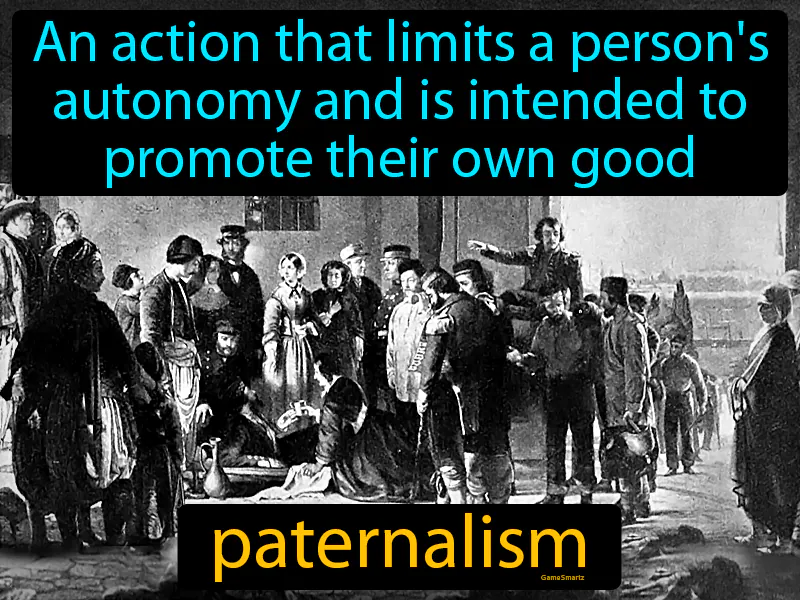Paternalism
Paternalism:
During The New Imperialism period from 1800-1915, paternalism was a concept where European powers justified controlling other nations by claiming they were helping them develop. They believed colonized people were incapable of self-governance and needed European guidance to modernize and improve their societies. This approach was important at the time as it provided a rationale for imperial expansion and exploitation, often masking the economic and political benefits for the colonizers. Today, paternalism still appears in situations where decisions are made for individuals or groups with the intention of protecting or benefiting them, often without their input. An example is when governments enforce public health measures like mandatory vaccinations, aiming to protect the public while limiting personal choice, showing how paternalism continues to influence decision-making in society.

Practice Version

Paternalism: An action that limits a person's autonomy and is intended to promote their own good. Paternalism. In history, paternalism often refers to authorities or governing bodies making decisions for people, claiming it's for their own benefit, like colonial powers justifying control over colonies.
